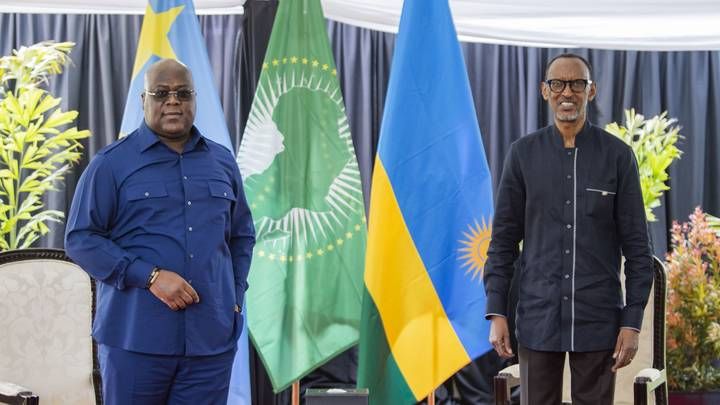
Relations between the Democratic Republic of Congo (DRC) and Rwanda have long been fraught with mistrust and conflict, exacerbated by allegations of Kigali’s involvement with the M23 rebel group in eastern Congo.
The decades-long tension, which has cost thousands of civilian lives and displaced countless others, has taken an unprecedented diplomatic turn with the signing of a new agreement in Washington under the mediation of the United States and Qatar.
African Union (AU) Commission Chairperson Mahamoud Ali Youssouf, present at the signing ceremony, welcomed the accord as “an important step” toward ending recurring violence in the volatile border region.
He praised the joint efforts that led to this rapprochement and highlighted the crucial role played by the US and Qatari mediators in steering the talks.
The agreement, formalised on June 27, 2025, was signed by the foreign ministers of the two nations — Thérèse Kayikwamba Wagner for the DRC and Olivier Nduhungirehe for Rwanda — under the watchful eye of US Secretary of State Marco Rubio.
Former US President Donald Trump, who spearheaded the mediation process, hailed the deal as a historic milestone, signaling the end of “violence and destruction” and the dawn of “hope, harmony and peace” in the Great Lakes region.
Despite these optimistic declarations, some analysts caution that the agreement could bolster Washington’s strategic influence in the DRC.
Trump notably hinted that the deal might ease American access to the country’s rich mineral reserves, although the text itself contains no explicit reference to resource exploitation.
Significantly, the accord commits both states to respect territorial integrity and cease hostilities.
Yet it remains silent on key contentious issues: the territorial gains made by M23 rebels, which have deeply frustrated Kinshasa, are not addressed, nor is the alleged support provided by both governments to armed groups operating locally or across borders.
Nevertheless, the diplomatic breakthrough may open the door to wider regional stabilization—provided commitments translate into concrete action.
For the civilians of eastern Congo, caught for years in a deadly crossfire of armies, rebel factions, and geopolitical rivalries, the hope now is for tangible progress towards lasting peace and security.



